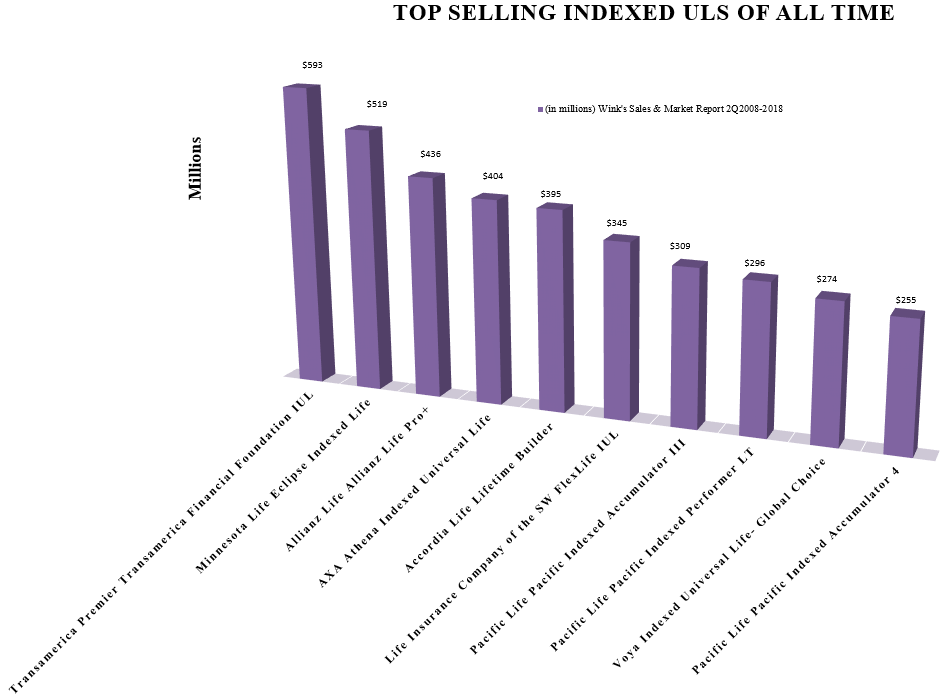All Categories
Featured
Table of Contents
1), usually in an attempt to defeat their group standards. This is a straw male disagreement, and one IUL folks enjoy to make. Do they compare the IUL to something like the Vanguard Overall Stock Market Fund Admiral Show no lots, an expenditure ratio (ER) of 5 basis points, a turnover ratio of 4.3%, and an exceptional tax-efficient record of distributions? No, they compare it to some terrible actively managed fund with an 8% tons, a 2% ER, an 80% turn over proportion, and an awful document of temporary resources gain distributions.
Common funds often make annual taxable distributions to fund proprietors, even when the worth of their fund has actually decreased in value. Mutual funds not just need income reporting (and the resulting yearly taxes) when the mutual fund is going up in value, but can additionally impose revenue taxes in a year when the fund has actually decreased in worth.
That's not exactly how mutual funds function. You can tax-manage the fund, collecting losses and gains in order to reduce taxed circulations to the capitalists, yet that isn't somehow going to alter the reported return of the fund. Just Bernie Madoff types can do that. IULs prevent myriad tax obligation traps. The ownership of common funds may require the mutual fund owner to pay approximated tax obligations.

IULs are simple to place to ensure that, at the owner's death, the beneficiary is exempt to either revenue or inheritance tax. The exact same tax obligation reduction strategies do not function nearly also with shared funds. There are various, frequently pricey, tax catches related to the timed trading of shared fund shares, traps that do not put on indexed life Insurance.
Possibilities aren't very high that you're mosting likely to undergo the AMT because of your shared fund distributions if you aren't without them. The remainder of this one is half-truths at best. While it is real that there is no income tax due to your successors when they inherit the earnings of your IUL policy, it is additionally true that there is no income tax obligation due to your beneficiaries when they acquire a common fund in a taxed account from you.
Wrl Ffiul
The government estate tax obligation exception restriction mores than $10 Million for a pair, and expanding every year with rising cost of living. It's a non-issue for the vast majority of medical professionals, much less the rest of America. There are much better ways to stay clear of inheritance tax issues than getting financial investments with reduced returns. Common funds may trigger revenue taxes of Social Safety and security advantages.

The growth within the IUL is tax-deferred and may be taken as tax obligation cost-free revenue using financings. The plan proprietor (vs. the mutual fund supervisor) is in control of his or her reportable revenue, thus enabling them to lower and even remove the taxes of their Social Security benefits. This set is fantastic.
Right here's another marginal issue. It holds true if you get a common fund for claim $10 per share right before the circulation day, and it disperses a $0.50 circulation, you are then mosting likely to owe tax obligations (possibly 7-10 cents per share) despite the truth that you have not yet had any type of gains.
In the end, it's truly about the after-tax return, not exactly how much you pay in taxes. You're also possibly going to have even more money after paying those taxes. The record-keeping needs for possessing common funds are dramatically more complicated.
With an IUL, one's records are maintained by the insurance provider, duplicates of yearly declarations are mailed to the proprietor, and distributions (if any kind of) are completed and reported at year end. This is also type of silly. Of program you ought to maintain your tax documents in case of an audit.
Guaranteed Universal Life Insurance Quote
Rarely a reason to acquire life insurance. Mutual funds are typically component of a decedent's probated estate.
On top of that, they are subject to the hold-ups and costs of probate. The proceeds of the IUL plan, on the various other hand, is always a non-probate circulation that passes beyond probate directly to one's called beneficiaries, and is as a result not subject to one's posthumous financial institutions, undesirable public disclosure, or comparable hold-ups and prices.
Medicaid disqualification and lifetime earnings. An IUL can provide their proprietors with a stream of earnings for their whole life time, no matter of exactly how lengthy they live.

This is advantageous when arranging one's affairs, and converting possessions to earnings before an assisted living home arrest. Common funds can not be transformed in a comparable way, and are usually thought about countable Medicaid properties. This is an additional dumb one promoting that inadequate individuals (you understand, the ones that require Medicaid, a government program for the inadequate, to pay for their nursing home) ought to utilize IUL as opposed to mutual funds.
Adjustable Premium Life Insurance
And life insurance policy looks terrible when contrasted relatively against a pension. Second, individuals who have cash to acquire IUL above and beyond their pension are going to need to be terrible at taking care of cash in order to ever get Medicaid to spend for their assisted living home prices.
Persistent and incurable health problem biker. All policies will certainly enable an owner's easy access to cash money from their policy, frequently waiving any kind of surrender fines when such people endure a significant disease, need at-home treatment, or come to be confined to an assisted living home. Common funds do not provide a comparable waiver when contingent deferred sales fees still apply to a common fund account whose owner requires to offer some shares to fund the expenses of such a stay.
Indexlife
You obtain to pay even more for that advantage (rider) with an insurance plan. What a terrific bargain! Indexed global life insurance provides death benefits to the beneficiaries of the IUL owners, and neither the proprietor neither the recipient can ever before lose cash as a result of a down market. Shared funds give no such warranties or death benefits of any type of kind.
Currently, ask yourself, do you in fact need or want a death benefit? I definitely do not need one after I get to economic self-reliance. Do I want one? I suppose if it were economical sufficient. Naturally, it isn't cheap. On average, a purchaser of life insurance policy spends for the true price of the life insurance advantage, plus the prices of the plan, plus the earnings of the insurance provider.
Veterans Universal Life Insurance
I'm not completely certain why Mr. Morais tossed in the whole "you can't shed money" once more below as it was covered fairly well in # 1. He just wished to duplicate the finest marketing factor for these things I expect. Again, you don't shed nominal bucks, yet you can lose real bucks, as well as face significant possibility expense due to reduced returns.

An indexed global life insurance coverage policy proprietor might trade their plan for a totally different policy without activating income tax obligations. A mutual fund proprietor can not move funds from one shared fund business to another without selling his shares at the previous (therefore activating a taxed event), and repurchasing new shares at the latter, usually based on sales charges at both.
While it holds true that you can trade one insurance plan for one more, the factor that people do this is that the initial one is such a dreadful plan that even after acquiring a new one and experiencing the early, adverse return years, you'll still come out ahead. If they were marketed the appropriate policy the initial time, they should not have any desire to ever before exchange it and experience the early, unfavorable return years once again.
Latest Posts
What's The Difference Between Universal Life And Whole Life Insurance
Universal Life Insurance Cost
What Is A Group Universal Life Insurance Policy